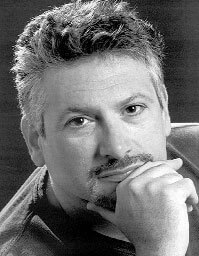November 16 gathering to focus on normalization of HIV
After Dan Carlson had unsafe sex this past December, he and Bruce Kellerhouse, a friend, began talking about how new HIV infections were increasing among gay men and how crystal meth was fueling unsafe sex among their peers. They wondered where the HIV prevention messages were in their community.
“I would say ‘I’m becoming very disillusioned, another person wanted to have unsafe sex with me,’” Carlson recalled. “I talked about my own personal experience in meeting a lot of people who wanted to have unsafe sex with me and becoming, at times, rather persistent about that.”
Kellerhouse, a psychologist in private practice, was very much aware that HIV was spreading among gay men.
“We were having dinners and lunches and spending time together and a lot of it was being spent complaining about the lack of HIV prevention messages,” Kellerhouse said. “Certainly I was seeing people in my practice who were sero-converting. I was also aware of increasing rates of sero-conversion among gay men.”
As they talked, their frustration grew. On the one hand, they did not see any community response to the increases in HIV and, on the other, they felt the need for a response.
“Initially it became around what Dan’s experience was and over the most recent months it had become less so,” Kellerhouse said. “It became more focused on what is the community doing for us, what is the city, what are the organizations, all of the structure that has done prevention, what are they doing for us?”
Fierstein was enlisted after he published an editorial in The New York Times on July 31 headlined “The Culture of Disease.” The piece argued that having HIV had been made to appear manageable, even sexy, and Fierstein called upon the gay community to “resist the normalization of disease and once again embrace health.”
Kellerhouse and Carlson were already talking about organizing some sort of event when the editorial appeared. They wrote Fierstein and asked him to moderate the evening’s discussion.
“We had this mutual frustration that there don’t seem to be any messages out there about not only what the problem is, but also trying to address the problem,” Kellerhouse said. “This was coming to a head a couple of weeks before Harvey’s editorial appeared.”
The two men will be on the panel as will Dennis deLeon, president of the Latino Commission on AIDS, Dr. David Kim, a physician in private practice, and Jeffrey Jones from San Francisco’s Stop AIDS Project.
“My feeling about [Stop AIDS] is they are on the cutting edge,” Kellerhouse said. “I want to hear how they do what they do and I think it’s important for other people to know that is possible.”
They are still looking for additional panelists.
Carlson and Kellerhouse hope the panel will reflect the diversity of New York City’s AIDS epidemic though it will focus specifically on men who have sex with men. The goal is to begin a dialogue.
“This is not a bunch of talking heads talking about this problem from a theoretical perspective,” Carlson said. “We’re going to spend maybe an hour talking about it and then it’s going to be a community forum, people from the community talking about their experiences, what they think can be done, what they’re doing, what they’re dealing with.”
While they are announcing the event as widely as possible they have not specifically invited any group or person other than the panelists.
“There is a philosophical piece that we have talked about,” Kellerhouse said. “We feel that the structure that’s in place, the organizations, the agencies who have been conducting the prevention dialogue in New York City, that whatever it is they are doing isn’t working. The event in some ways is a deliberate attempt to create a new dialogue and discourse about what’s going on.”
One indication of how widespread the dissatisfaction with HIV prevention might be is that their language mirrors comments Colin Robinson and Steven G. Fullwood made to Gay City News about “Think Again,” a new book they’ve edited aimed at launching a new dialogue about how gay and bisexual men of color live their lives, have sex, and deal with HIV.
“We want to encourage people to think again about what it means to be at risk,” Robinson said in an October 21 interview. “We haven’t been asking and engaging with the right questions.”
Four days later, Kellerhouse, who was unaware of the book, was equally strong in his comments that new response to HIV was called for.
“There is an awareness that there is something very wrong with business as usual,” he said. “In some ways it’s so broken that it feels like the only way to fix it is for there to be a shift.”



































